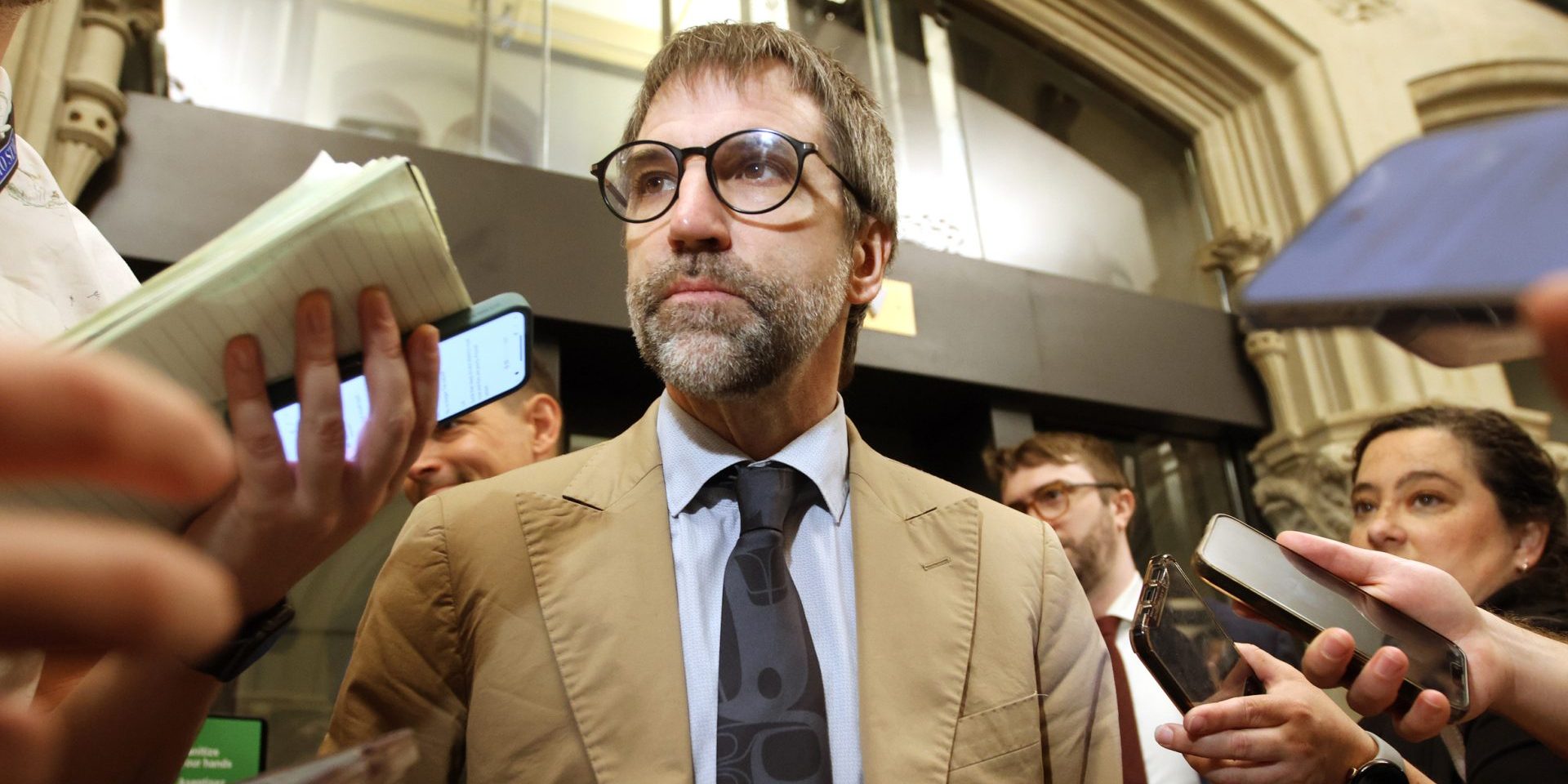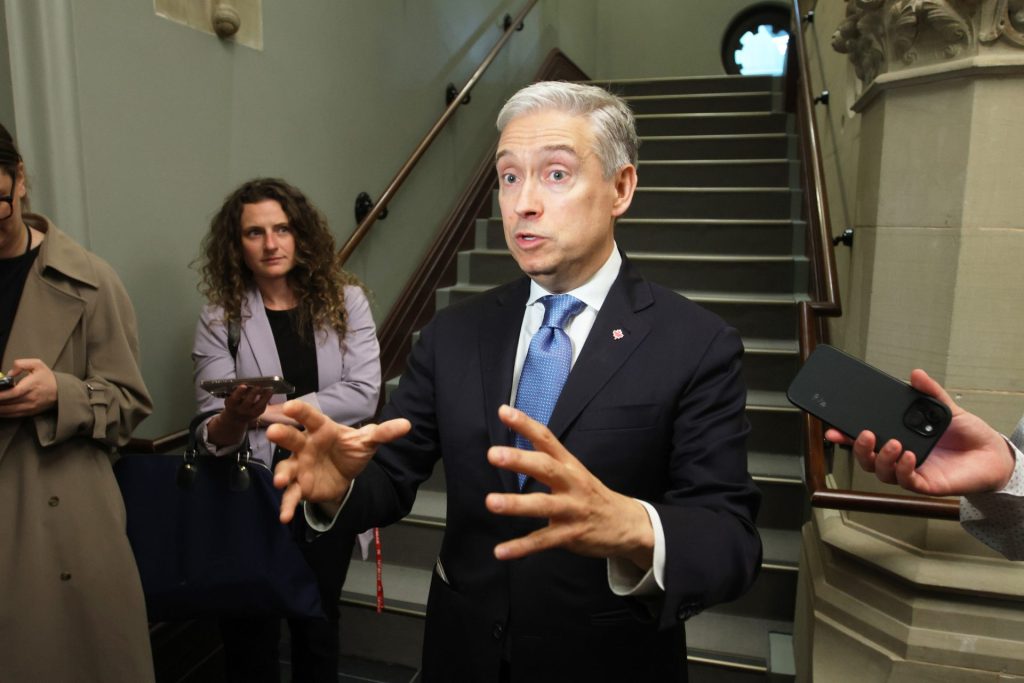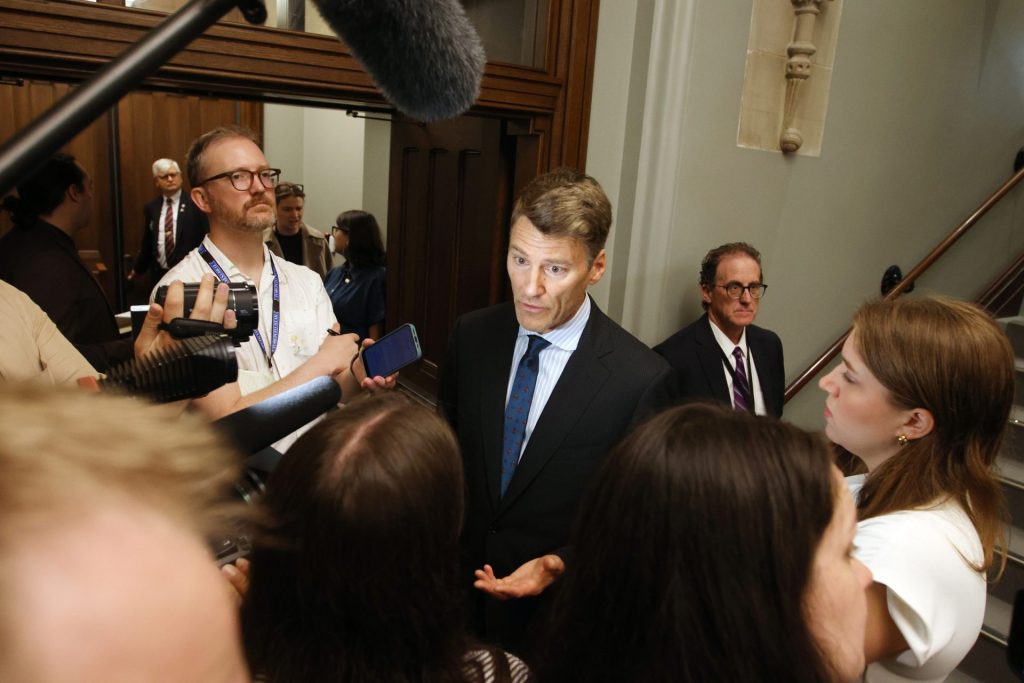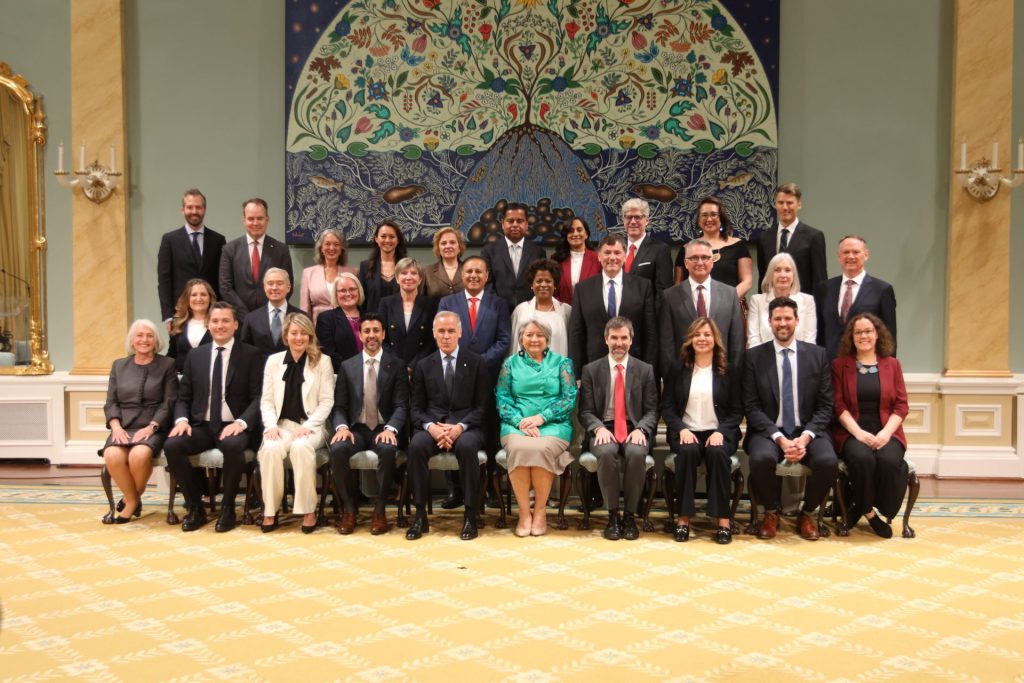New Liberal cabinet’s early stumbles all part of growing pains, say politicos

Prime Minister Mark Carney’s new cabinet is off to a shaky start, with mixed messages on key files like pipelines and housing, and no plans for a federal budget this year. But political observers say the government is going through growing pains and is finding its footing to act on a crowded agenda filled with complex domestic and foreign policy priorities.
Carney’s (Nepean, Ont.) newly minted cabinet held its first meeting on May 14, launching a new era of Liberal leadership with a blend of veteran politicians and first-time ministers and secretaries of state. However, their debut—met with a barrage of questions from reporters as they entered and exited the cabinet room that day—was far from smooth.
No budget, mixed messages on pipelines, unclear rhetoric on housing
Finance Minister François-Philippe Champagne (Saint-Maurice–Champlain, Que.) told reporters after the meeting that the Liberal government will not table a federal budget this year. It would instead table a fall economic statement, and introduce the tax cut—which Carney promised during his election campaign—when Parliament returns to work in the upcoming weeks, Champagne said.
“What we have today is a middle-class tax cut. That’s step one. Step two, you’re going to have a throne speech where we will outline the Canadian government’s priorities, and there will be a fall economic statement to follow,” Champagne told reporters.

When asked if he believes home prices need to come down, new Housing Minister Gregor Robertson (Vancouver Centre, B.C.) told reporters, : “No, I think that we need to deliver more supply, make sure the market is stable.” While new to his cabinet role, Robertson previously served as mayor of Vancouver from 2008 to 2018.
Robertson’s remarks sparked a flurry of criticism, and appeared to contradict a response Carney had given the day before when asked if Robertson’s appointment was “a signal from you that you don’t think housing prices should go down?”
“You would be very hard-pressed to make that conclusion from everything I’ve said and what our priorities are,” Carney said on May 13.
Responding to backlash to his remarks on social media, Robertson wrote on X: “The question I answered was about reducing the price of a family’s current home, which for most Canadians, is their most valuable asset. The question wasn’t ‘should homes be more affordable?’ Of course they should … I’m focused on what the federal government can and should do to increase the supply and drive down the overall cost of housing.”
Robertson was not alone. Canadian Identity and Culture Minister and Quebec Lieutenant Steven Guilbeault (Laurier–Sainte-Marie, Que.), who previously served as the environment minister, also came under fire for his remarks about pipelines.
When asked to comment on Alberta Premier Danielle Smith’s characterization of him as anti-pipeline, Guilbeault told reporters on May 14 that Canada should optimize its use of existing pipelines, incorrectly citing the Trans Mountain pipeline as being used at 40 per cent capacity.
“I think before we start talking about building an entire new pipeline, maybe we should maximize the use of existing infrastructure,” he said. Trans Mountain reported the total utilization of the pipeline at 77 per cent in 2024.
Guilbeault’s remarks contradicted those of Carney’s, who said in a CTV interview the day before that he’s open to building more pipelines if there is national consensus. “If you want a simple answer on ‘Will I support building a pipeline?’ Yes. That simple answer. I’ve given that multiple times,” Carney said.
Guilbeault’s comments also come against the backdrop of ongoing tensions between oil-rich Alberta and Ottawa over the future of Canada’s energy policy and regional autonomy.
Eyebrows were also raised after secretary of state for Canada Revenue Agency and financial institutions Wayne Long (Saint John–Kennebecasis, N.B.) told reporters he believes “we’re going to see our government run like a corporation, which I think is long overdue.”
Early remarks show ‘sloppiness’: Yaroslav Baran
The new cabinet’s early messaging issues could be attributed to growing pains, typical of a new government still finding its rhythm, say politicos.
Alex Marland, a political scientist at Acadia University and Jarislowsky Chair in Trust and Political Leadership, described the inconsistent messaging from the Liberal front bench as “probably a hiccup by a new government that is getting organized.”
Speaking to the broader, long-standing principles, he said, “the cabinet collective responsibility means that all ministers must speak with one voice and fall in line with what the prime minister says publicly. Otherwise, they must resign,” he said.
Marland drew a parallel with the aftermath of the 2015 election that vaulted Justin Trudeau to power. “Back then, ministerial independence flittered away once the PMO and ministers’ offices got staffed up. I expect the Carney cabinet to be moving in lockstep in short order,” he said.
“Conversely, backbenchers are under no such formal principle. It will be refreshing if some Liberal MPs have the fortitude to say different things than the prime minister or cabinet,” Marland noted.
It wasn’t a strong communications debut for the Liberals, according to former Conservative strategist and Pendulum Group co-founder Yaroslav Baran, who described some of the remarks as to avoidable gaffes and inconsistent messaging.
“There appeared to be a lack of discipline, sloppiness, and we did have some ministers off message, displaying their traditional biases rather than toeing the party line as articulated by the prime minister,” Baran said.

Robertson’s remarks in particular were “really not a good start for him in this portfolio,” Baran said, noting the point the rookie MP and minister seemed to be making—that Canada needs to boost its housing supply—was valid, but his framing of it was “really dumb.”
“For a new housing minister to fumble a very easy question, to say, ‘No, we don’t need to bring house prices down,’ that’s going to be highly offensive to an entire generation of Canadians who are anxious about the prospect of ever owning their own home,” Baran said.
Baran also called Guilbeault’s pipeline comments “completely off message and unnecessary,” as well as “very unhelpful,” warning they could further inflame regional divisions.
“I would imagine the PMO is probably going to rake him over the coals for that. He took an opportunity to demonstrate a final gasp of his bias against a big swath of Canada’s energy sector.”
Although unexpected, the decision to skip a spring budget doesn’t signal an unprepared government, but instead points to one with a crowded agenda and limited time to deliver, sources told The Hill Times.
Lori Turnbull, a senior adviser at the Institute on Governance and a professor of political science at Dalhousie University, said she suspects the decision comes down to uncertainty about projections.
“I don’t read anything sinister into it,” Turnbull said. “I think it’s that they need some time to sort it out, and they don’t know what’s happening with the tariff situation.”
Baran said it was “a good decision practically,” given the government has only a very short sitting ahead during which they need to deliver a throne speech and move forward on some key files, such as a relief mechanism for sectors hit by the trade war, the promised middle-class tax cut, and a bill to remove federal interprovincial trade barriers.
“The big drama of the federal budget? I don’t think they have time for that. It’s a political manifesto,” Baran said. What really needs to be done is for the government to pass a supply bill—the process by which the government submits its projected annual expenditures for parliamentary approval—and main estimates before the end of June as well as the corresponding appropriations bill. “That’s the real budget,” he said.
Asked whether the mixed signals show the new government is unprepared, Turnbull said it’s too early to draw such a conclusion, arguing that there is a learning curve for ministers. She said that some of the controversial comments could be chalked up to first-day excitement for newbies, and managing shifting responsibilities for the experienced ones.
“This is the early hours of the government. Of course there’s going to be an opportunity for people to learn how to respond to questions, what the right party line is … Every new government is going to have a couple of days where they need to get things up and running, and they need to coordinate their messaging,” she said.
“The alternative would be they all come out and read from the hymnbook of Mark Carney, which isn’t exactly a better thing. Let them talk. Who cares? They’ll figure it out, they’ll go on, the policies will be made,” she added.
Turnbull also noted that those messages don’t carry a lot of weight, noting that Carney is the one to make the final calls. “If there’s any space between the prime minister and a minister, if there’s any contradiction, the prime minister’s way is the way every time.”

When it comes to Guilbeault’s comments, given that pipeline issues is no longer under his purview, his voice is not going to have any more effect on policy than any other cabinet member, Turnbull said.
“Cabinet decisions are made by consensus. The prime minister decides what the consensus is. And so Mr. Guilbeault’s opinion is not going to determine government policy and guidelines.”
Turnbull argued that the idea of Carney running the country like a corporation likely doesn’t imply a profit-driven government, but rather one focused on governance structure, accountability, and expecting ministers to deliver results.
“[Carney] doesn’t come at this with any sense of political sentimentality. He comes at this with a sense that he’s got ideas, he’s got things he wants to achieve, and he’s going to deliver results,” Turnbull said.
“I wouldn’t be surprised to see ministerial firings from this prime minister. If he doesn’t like what he sees, he’s going to move on to somebody else.”
According to Baran, Long’s idea that Carney may run the country more like a company is likely to land well with the business community and taxpayers.
“Run it like a business. Keep an eye on the balance sheet. Evaluate projects in terms of potential return on investment, in terms of what you can do leveraging public funds, and make decisions accordingly. I think that’ll be very welcome commentary to many people,” Baran said.
As for whether those early remarks reveal what kind of approach to governance the Liberals will follow, Baran said Carney appears to be signalling a more decentralized government and autonomy for ministers, adding that usually, as time goes on the PMO takes charge of the narrative, “out of necessity or because we’re in a 24/7 news cycle, where you need communications and decision-making to be streamlined and highly disciplined. So, we’ll see.”
Despite the early fumbles, Baran said public perception will not be shaped by political insiders.
“For people inside the bubble, we can say: not a great start. But for the public? They’ll see cabinet photos, and probably nothing else until the King delivers the throne speech,” Baran said. “Big picture? No big deal.”
The Hill Times






 LICENSING
LICENSING PODCAST
PODCAST ALERTS
ALERTS













